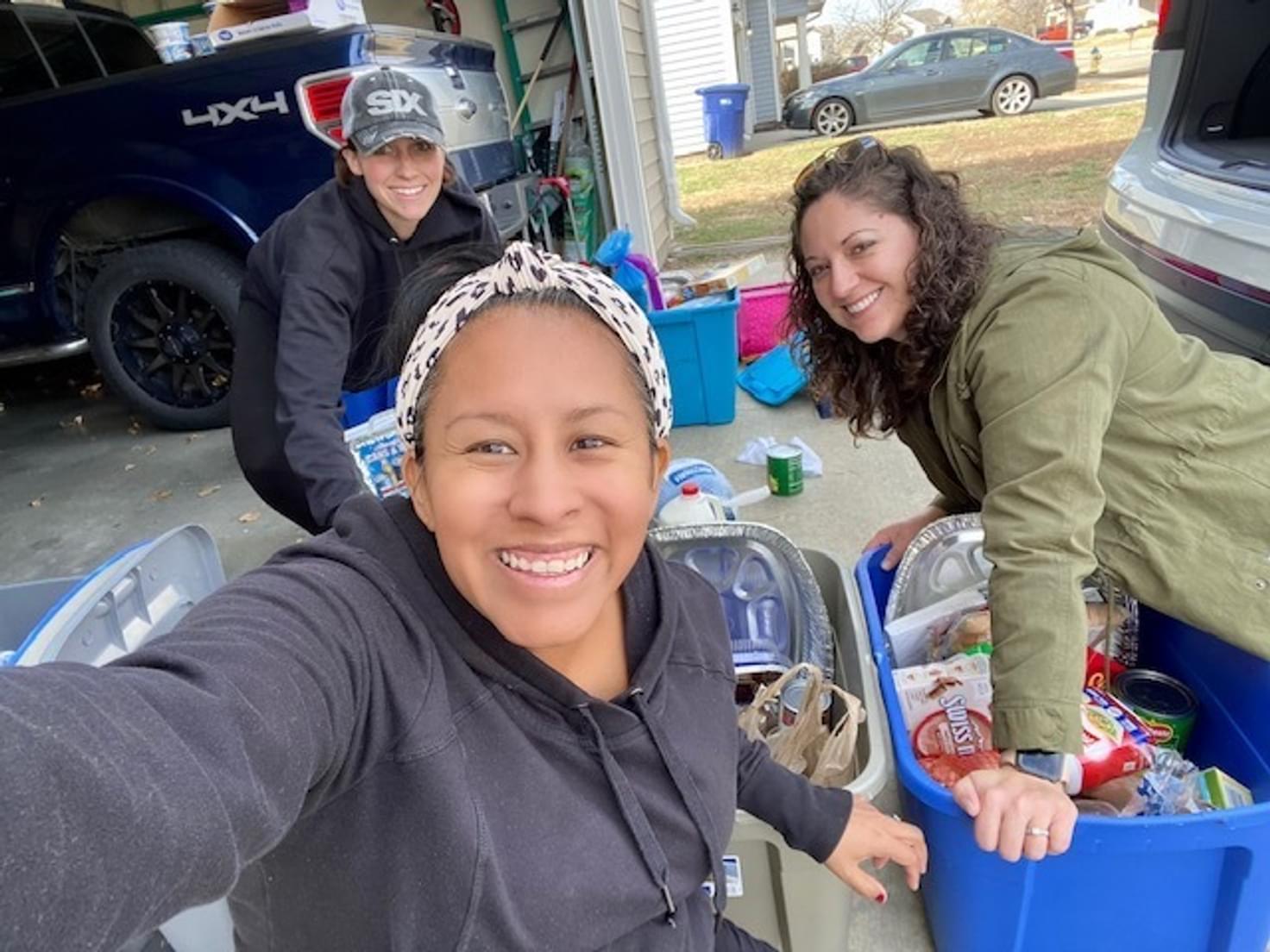
Words by Tess Becker
Food scarcity is a widely known phenomenon across the United States. Between the cost of living and vast food deserts across the country, around 33.8 million people, about 1 in 10, lived in food-insecure households, according to the USDA.
Organizations like Feeding America exist to aid these people and communities that struggle with food security. Military families, however, are often underrepresented and an unexpected statistic in the struggle for food security.
According to the Military Family Advisory Network, around 1 in 8 military families deal with food insecurity not only matching but surpassing the national average. This is something that Monica Bassett wants to address. Monica has been a military spouse for nearly a decade, which has given her a yearning to help fellow military families.
Asked about what some military families experience, she tells Smiley News: "A family was living in an empty home only getting exactly what they needed for their family, but they were still tapped out.
"They were going through their neighbor's trash at night to try to salvage whatever food they could to feed their family, or they had fed their kids and she and her husband had not eaten and that's what they were salvaging for and that's when I finally just put my foot down. I told my husband, ‘I don't care if we have to go buy all the food, we're doing something.’”
And do something she did. Her first project started soon after right out of her garage, where through her family’s own additions plus an outpouring of donations and support she started making care baskets. The baskets contained everyday products like food and other necessities.
“I had neighbors wheeling wagons full of food,” Monica says. “So I paid for some but it really was the community coming together. Once I got buy-in from a greater community, it really was everyone pitching in where they could.”
Eventually, the program became so big that by the time her family was being moved to another base she decided to move leadership to another person. She wasn’t done though, at her next base, she decided to take things even further by making a food pantry available to all people on base.

One of the main things she wanted to do with this pantry was to eliminate the potential shame or stigma people may feel by asking for help.
“It is hard to say you need help,” Monica says. And it is really hard in the military to raise your hand and say that you can't feed your family. There are a few things that in the military get factored in with pantries and why they don't use them or why soldiers don't raise their hand that they need assistance and that stigma, and the fear of repercussions and the fear of embarrassment.”
“I really want to respect the dignity and the anonymity of a family and support them. So it's not going to be a walk into a facility, it's everything is a take-your-order online, and it's going to be drive and pickup around.”
The pantry will also handle emergency orders with delivery available for those cases.
And during holiday season, Monica gears up for the specific needs of people including things like recipes for people to help stretch Thanksgiving leftovers long after the holiday passes.

“It's really important for us to bring awareness that military families are really struggling,” Monica adds.
“A lot of people don't see that. I've been speaking a lot at different clubs here and it has never crossed their mind that military families need assistance because they think it's all well and done. ‘You've got housing, you got health care, you get paid well.’
"And no, it's just it has been a silent crisis for decades, that has now imploded with so many deployments with the cost of living with the cost of housing.”